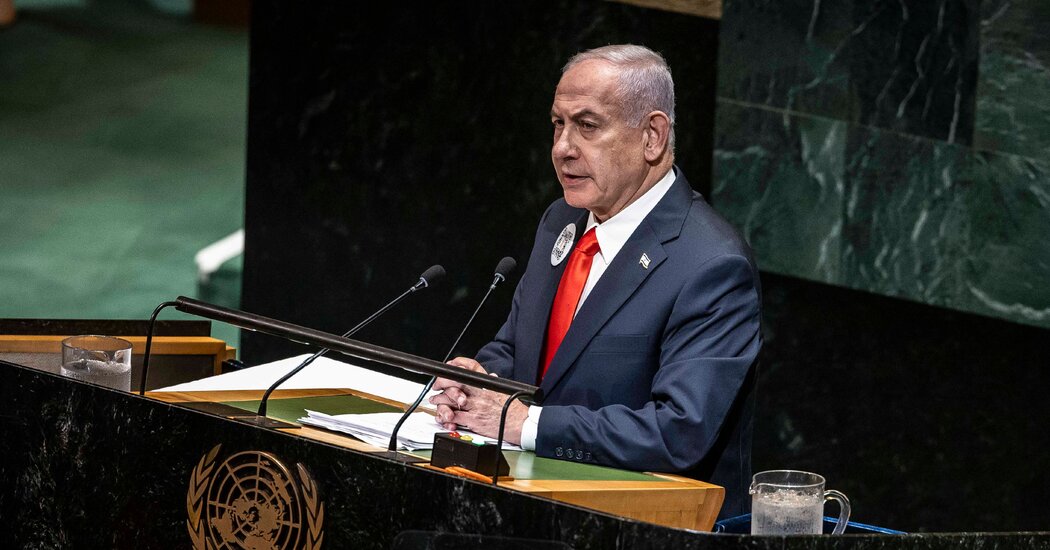
The run-up to Thursday’s cease-fire agreement with Hamas was not smooth for Prime Minister Benjamin Netanyahu of Israel.
After railing against a Palestinian state at the United Nations, he was made to accept at least the eventual possibility of such a state just three days later at the White House. When Hamas’s acceptance of President Trump’s plan to the end the Gaza war came with so many caveats that his allies saw it as a rejection, Mr. Netanyahu was pressured into going along with it anyway.
And after promising Israel a “total victory” that would ensure Gaza could “never again” threaten them, Mr. Netanyahu agreed on Thursday to pull its military back before Hamas had assented to any form of disarmament, let alone to surrendering or relinquishing its role in governing Gaza.
Still, Mr. Netanyahu gets to welcome home all of Israel’s hostages, delivering Israelis the relief and closure that they have craved. An expected visit by Mr. Trump would allow him to bask in the glow and reflected glory of a national celebration. And he is already alluding to the possibility of bigger and better things for Israel.
“God willing, we will continue together in order to achieve all our aims and expand the peace with our neighbours,” he wrote on X a few hours after the deal was sealed in Sharm el-Sheikh, Egypt.
For Mr. Netanyahu, who faces elections no later than October 2026 — though they could take place sooner if his government falls or he chooses to accelerate the timetable — the turnabout in fortunes is stark, said Asaf Shariv, a political analyst and former Israeli diplomat. “If he could make the next election happen in a week, he would take it,” he said.
Reuven Hazan, a professor of political science at Hebrew University, called the agreement a “game changer” for Mr. Netanyahu: “We’re less than a year away from elections, probably significantly less, and he was walking toward a campaign that would’ve ripped him apart from all possible angles.”
The war’s end could even ease the broad public pressure on Mr. Netanyahu to require ultra-Orthodox Jews to serve in the military, Mr. Hazan speculated — a change that he has avoided because the ultra-Orthodox parties are critical members of his coalition.
Now, Mr. Netanyahu will be able to say that he decimated Hamas, after scoring victories over Iran and Hezbollah, Mr. Hazan added. “He’ll say, ‘Give me another term in office and I’ll deliver normalization with the Gulf states and redraw the map of this region.’”
Mr. Netanyahu also appears to have cornered his far-right coalition partners, Bezalel Smotrich and Itamar Ben-Gvir, into sticking by him so far. While Mr. Smotrich said on Thursday that he would not vote for the cease-fire, he said he felt “immense joy” at the pending release of the hostages and he did not threaten to leave the coalition, as he often has in the past.
All of which suggests that Mr. Netanyahu will have plenty to work with. “We’re going to see the reprisal of Bibi classic,” said Shalom Lipner, a political analyst who worked for Mr. Netanyahu years ago.
“There’s nobody else on his level: ‘Nobody else could’ve managed a relationship with the White House the way I have.’ We’re bringing home the hostages, members of his coalition will be against some aspects of it, and the opposition will be confounded because they support a deal, too.”
That would allow Mr. Netanyahu to “divide and conquer,” Mr. Lipner added. “And he’ll hope that he can use that to crowd out all the negativity of the past two years, and his role in it in the first place.”